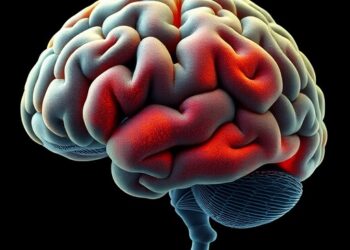ACP Recommends AI Tech Should Augment Physician Decision-Making, Not Replace It
ACP Recommends AI Tech Should Augment Physician Decision-Making, Not Replace It
WASHINGTON, June 4, 2024—The use of artificial intelligence (AI) in clinical health care has the potential to transform health care delivery but it should not replace physician decision-making, says the American College of Physicians (ACP) in a new policy paper published today. “Artificial Intelligence in the Provision of Health Care,” published in the Annals of Internal Medicine, offers recommendations on the ethical, scientific, and clinical components of AI use, and says that AI tools and systems should enhance human intelligence, not supplant it.
“AI has the potential to aid in solving some of the issues currently plaguing the health care industry, such as clinician shortages, burnout, and administrative burdens,” said Isaac O. Opole, MBChB, PhD, MACP, president, ACP. “However, to ensure that we are able to realize the most benefit, with the fewest harms to patients, we need to fully understand the implications of the technology that we are implementing.”
To navigate the risks and ensure best practices, ACP recommends that AI-enabled technology should be limited to a supportive role in clinical decision-making. ACP notes that when being used for clinical decision-making, the technology would more appropriately be called “augmented” intelligence, since the tools should ideally be used to assist clinicians, not replace them. The tools must be developed, tested, and used transparently, while prioritizing privacy, clinical safety, and effectiveness. The use of technology should actively work to reduce, not exacerbate, disparities, ensuring a fair and just health care system. ACP recommends that to ensure accountability and oversight of AI-enabled medical tools, there should be a coordinated federal strategy involving oversight of AI by governmental and non-governmental regulatory entities. The tools should be designed to reduce physician and other clinician burdens in support of patient care, while guided by unwavering principles of medical ethics.
Additionally, to ensure that AI tools are administered safely, ACP advises that training on AI in medicine be provided at all levels of medical education. Physicians must be able to both use the technology and remain able to make appropriate clinical decisions independently, in the case that AI decision support becomes unavailable. Lastly, efforts to quantify the environmental impacts of AI must continue and mitigation of those impacts should be considered.
“AI has already made an impact in the medical community, and ACP is excited about what it means for the future of health care,” remarked Dr. Opole. “There is so much potential to use this revolutionary technology to improve clinical practices and promote health equity. As we incorporate AI into medical practice, it is essential to maintain an awareness of the clinical and ethical implications of AI technology and its impacts on patient well-being.”
***
About the American College of Physicians
The American College of Physicians is the largest medical specialty organization in the United States with members in more than 145 countries worldwide. ACP membership includes 161,000 internal medicine physicians, related subspecialists and medical students. Internal medicine physicians are specialists who apply scientific knowledge and clinical expertise to the diagnosis, treatment and compassionate care of adults across the spectrum from health to complex illness. Follow ACP on X, Facebook, Instagram and LinkedIn.
Contact: Jacquelyn Blaser, (202) 261-4572, jblaser@acponline.org
Journal
Annals of Internal Medicine
DOI
Method of Research
News article
Subject of Research
People
Article Title
Artificial Intelligence in the Provision of Health Care: An American College of Physicians Policy Position Paper
Article Publication Date
4-Jun-2024




